| Soumendra Mohan Patnaik (M.Phil, Ph.D) Professor & HEAD 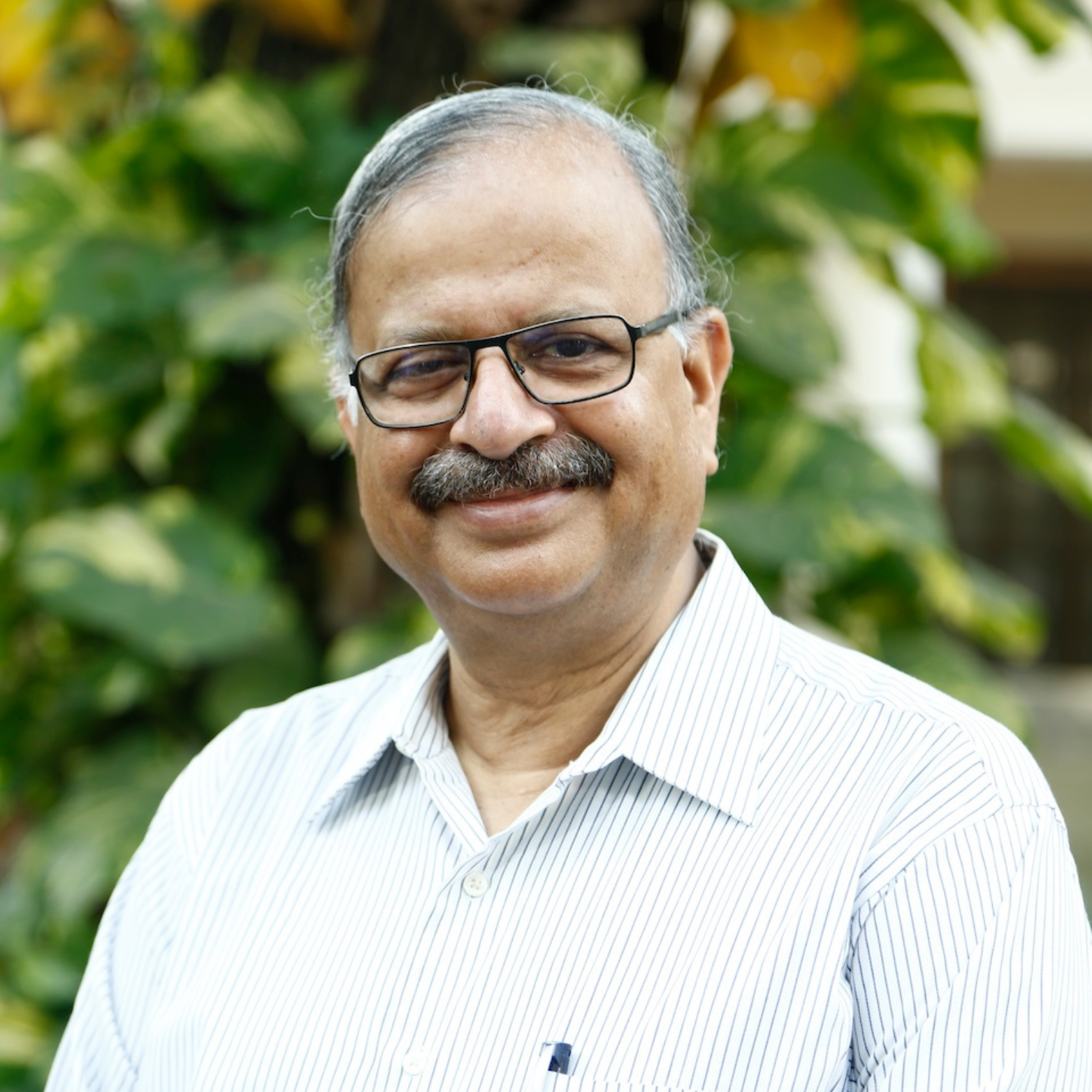
|
Professor Patnaik currently serves as the Head of the Department of Anthropology at the University of Delhi, as well as the Director of the Centre for Tribal Studies and President of the Indian Anthropological Association. He also holds the position of Chair for the Commission on Policy and Governance within the International Union of Anthropological and Ethnological Sciences (IUAES). Previously, he held prestigious roles as the Vice Chancellor of Utkal University (2017–2020) and the Odisha University of Agriculture and Technology. With more than two decades of teaching experience in Social Anthropology, Professor Patnaik’s career includes serving as a Fulbright-Nehru Visiting Lecturer at the VT Institute for Policy and Governance/Urban Affairs and Planning at Virginia Tech University, USA, from August 2011 to January 2012. He has also been a visiting faculty member at various universities, both within India and internationally, contributing significantly to academic collaboration and exchange. In addition to his academic leadership, Professor Patnaik serves as the Convener of the Research Committee for the Rural, Peasant, and Tribal Commission, and is the Director of Publications for the Ethnographic and Folk Culture Society. His scholarly contributions extend to the editorial realm, where he is a member of the Editorial Board of Asian Anthropology, a journal published by the Hong Kong Anthropological Society. Professor Patnaik also holds governance roles within higher education, acting as the Chairman of the Governing Board of Lakshmibai College, University of Delhi, and as Treasurer and Governing Board Member of Shaheed Rajguru College of Applied Sciences for Women, University of Delhi. His diverse contributions exemplify a career dedicated to advancing anthropology and fostering cross-disciplinary collaboration on a global scale.
|
||
Prakash Ranjan Mondal (Ph.D) Professor 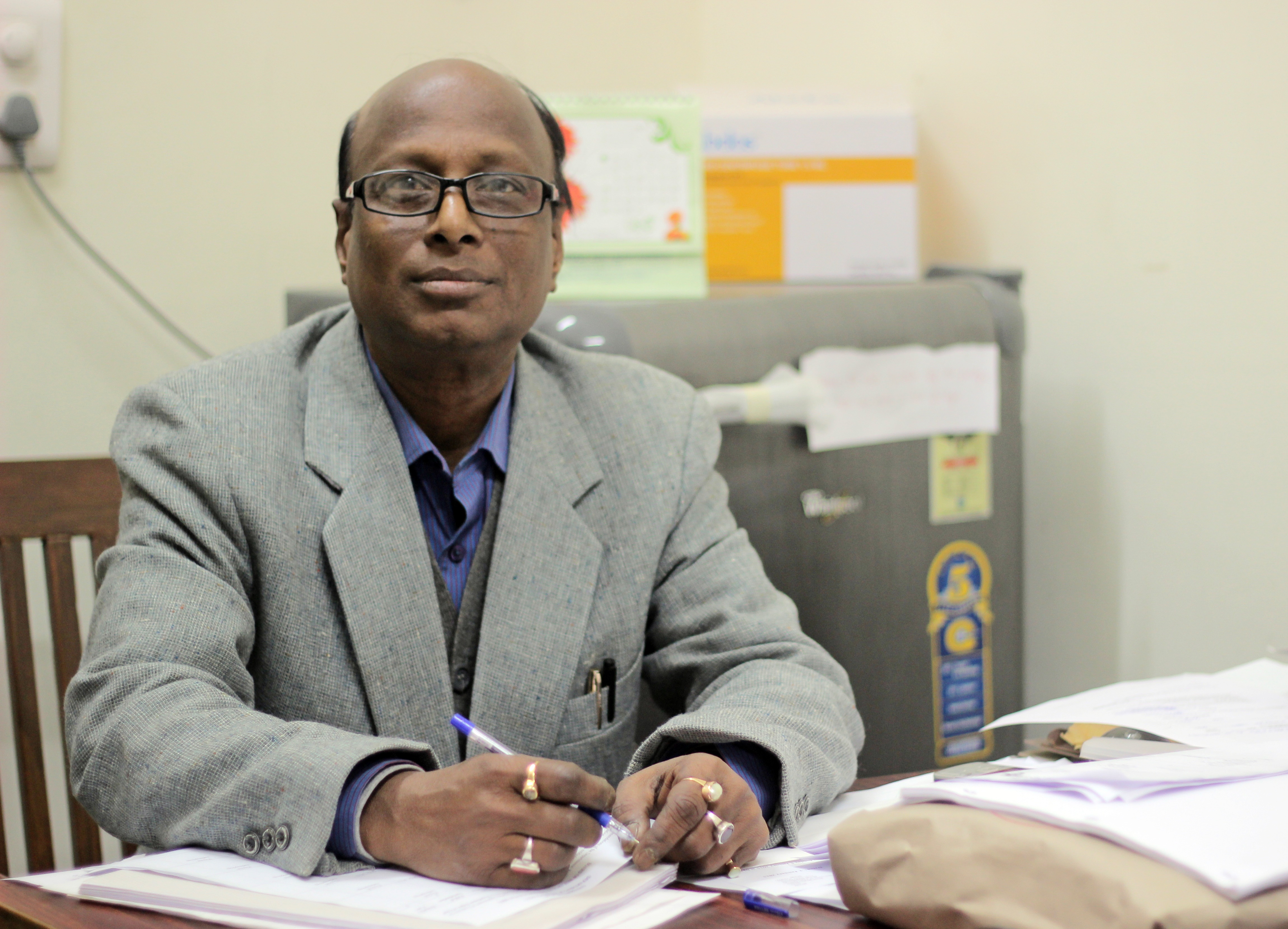
genomic studies (Molecular Anthropology) |
Prof. Mondal is a distinguished academic in the field of anthropology with extensive teaching and research experience. He earned his Ph.D. and postgraduate degrees from the University of Delhi. His undergraduate studies were completed at the University of Calcutta in 1984. His research interests span forensic anthropology, population genetics, and human variation, with several publications in international journals such as the Egyptian Journal of Forensic Sciences, Biochemical Genetics, and Genetic Testing and Molecular Biomarkers. He has contributed significantly to studies on the prevalence of obesity and hypertension in Indian populations, as well as genetic polymorphisms and their role in cardiometabolic risk factors.
Prof. Mondal has also been involved in field and research assistant roles early in his career and continues to make impactful contributions through his scholarly work, particularly in dermatoglyphics and human diversity studies.
|
||
Manoj K. Singh (Ph.D) Professor 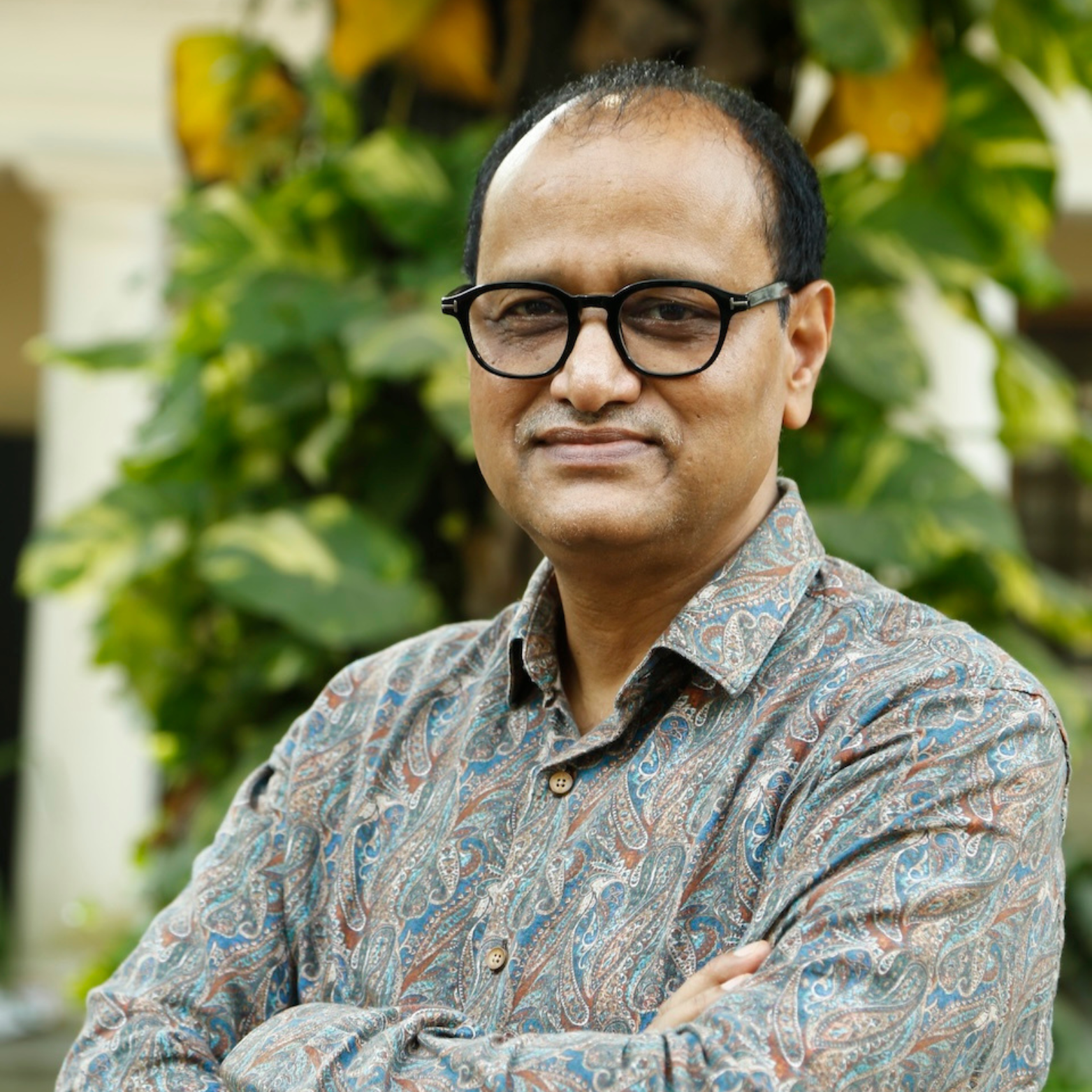
|
Prof. Manoj Kumar Singh is a distinguished anthropologist specialising in archaeological anthropology and paleoanthropology. He completed his early education in Anthropology at Gossner College, University of Ranchi, followed by a Ph.D. from the University of Delhi in 2002. Since then, he has been a faculty member in the Department of Anthropology at the University of Delhi. In addition to his academic contributions, Prof. Singh has held administrative roles, serving as the Deputy Proctor of the University of Delhi since 2013 and Joint Proctor since 2021. Prof. Singh’s scholarly achievements are recognized at the national level, with numerous awards to his name, including the ISCA Young Scientist Award in 2002 and the IPA President’s Gold Medal Award in 2015. His extensive research work includes studies on prehistoric cultures in India, with several papers published in prestigious journals, such as The Asiatic Society and Puratattva. He was also elected President of the Section of Anthropological and Behavioural Sciences at the 108th Indian Science Congress. His work spans ethno-archaeological studies, cultural transitions, and lithic analysis in regions such as Andhra Pradesh, South Bihar, and Mayurbhanj, significantly contributing to the understanding of India's prehistoric and protohistoric past.
| ||
K N Saraswathy (M.Phil, Ph.D) Professor 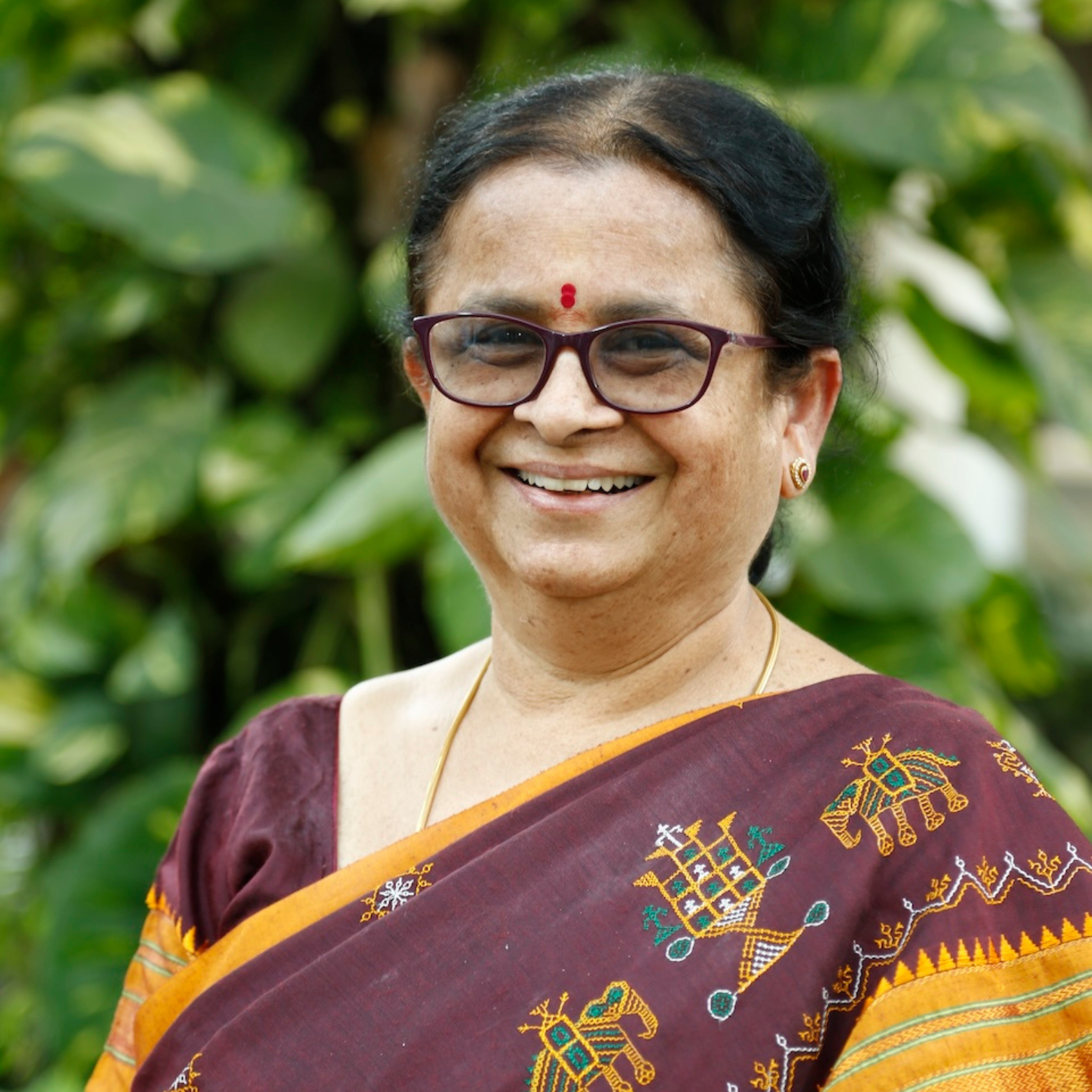
|
Prof. Kallur Nava Saraswathy is a leading biological anthropologist based at the Department of Anthropology, University of Delhi. Prof. Saraswathy earned her PhD from the Department of Anthropology at the University of Delhi in 2000. Following this, she pursued a post-doctoral fellowship at the Albert Einstein Institute of Medical Sciences, Yeshiva University, New York. Upon her return to India, she joined the Amity Institute of Biotechnology, Noida, as an Assistant Professor before transitioning to the Department of Anthropology at the University of Delhi in 2002. During her post-doctoral study, Prof. Saraswathy's experience enabled her to revive the Molecular Anthropology Laboratory in her department, which now serves numerous research scholars under her guidance and that of other faculty members. Over the years, she has supervised 22 PhD, 13 MPhil, and 5 MD scholars. She has received extra mural funding from DBT, DST, ICMR, ICSSR, NCW, UGC, and DU-Research & Development. In her tenure spanning over two decades at the Department of Anthropology, she has completed 29 research projects, collectively securing research funds amounting to 80 million Indian Rupees. Her research across various domains and populations in India has resulted in the publication of 205 research papers in various peer-reviewed national and international journals.
| ||
Benrithung Murry (Ph.D) Professor 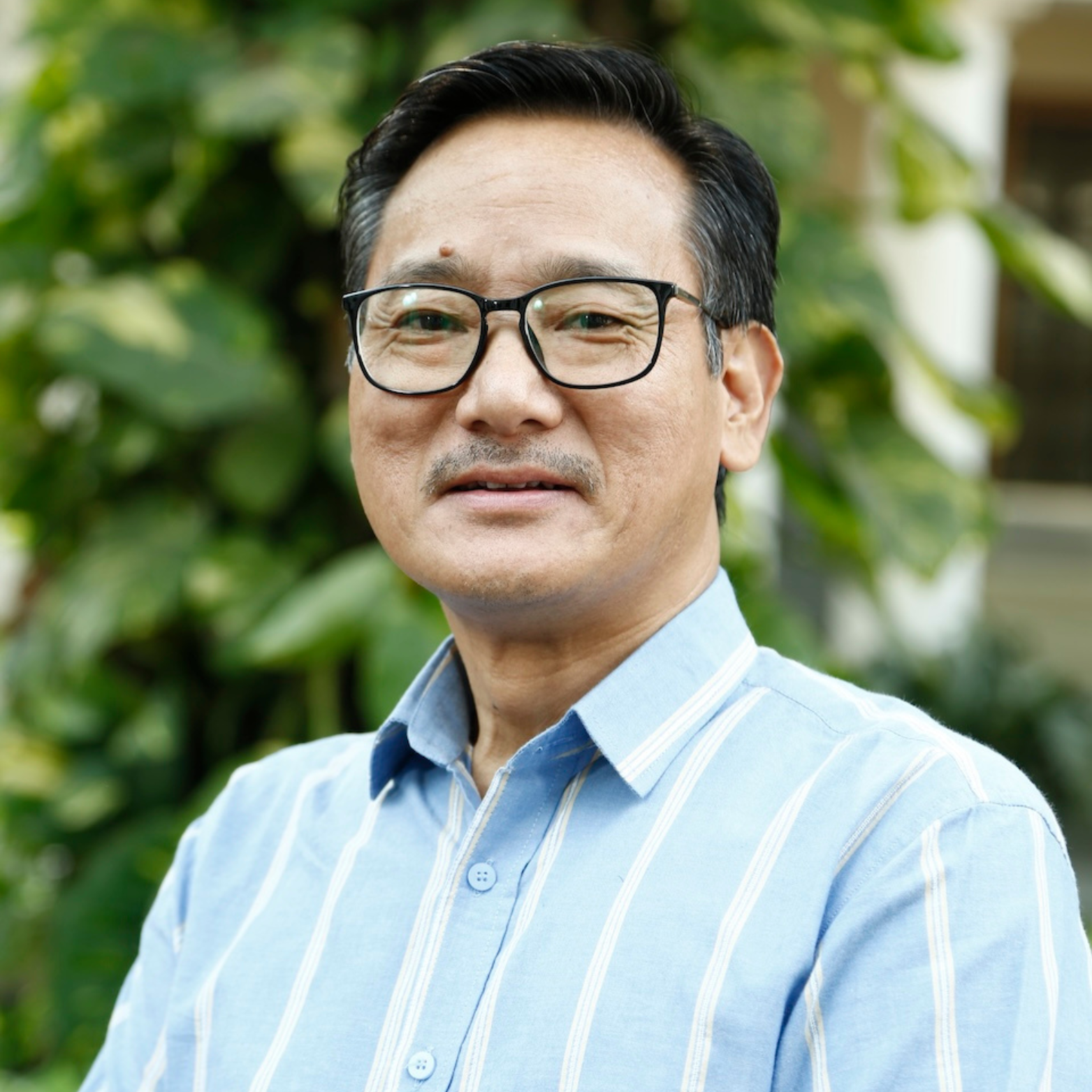
|
Benrithung Murry is a Professor at the Department of Anthropology, University of Delhi. He earned his PhD from the University of Delhi in 2002, following an MSc in Anthropology from North Eastern Hill University, Shillong, in 1997, and a BSc (Hons.) in Anthropology from Nagaland University in 1995. Prof. Murry has held various roles, including Research Officer at the Law Research Institute, Gauhati High Court, from 2003 to 2004. He also served as a Guest Lecturer at North Eastern Hill University from 1999 to 2000. Prof. Murry specializes in Demography and Human Genetics, and his research includes a focus on Human Evolution, Ethnic Diversity, and Bio-diversity. He has supervised numerous doctoral and M.Phil. students and has published over 50 scholarly articles, contributing to fields like cardiovascular studies, genetic polymorphisms, and demographic dynamics. His notable works include studies on tribal populations, as well as research on the genetic and sociocultural factors influencing health. He has also been actively involved in multiple research projects, such as studies on thalassemia and cardiomyopathies, funded by agencies like the ICMR and Department of Biotechnology.
| ||
R. P. Mitra (M.Phil, Ph.D) Professor 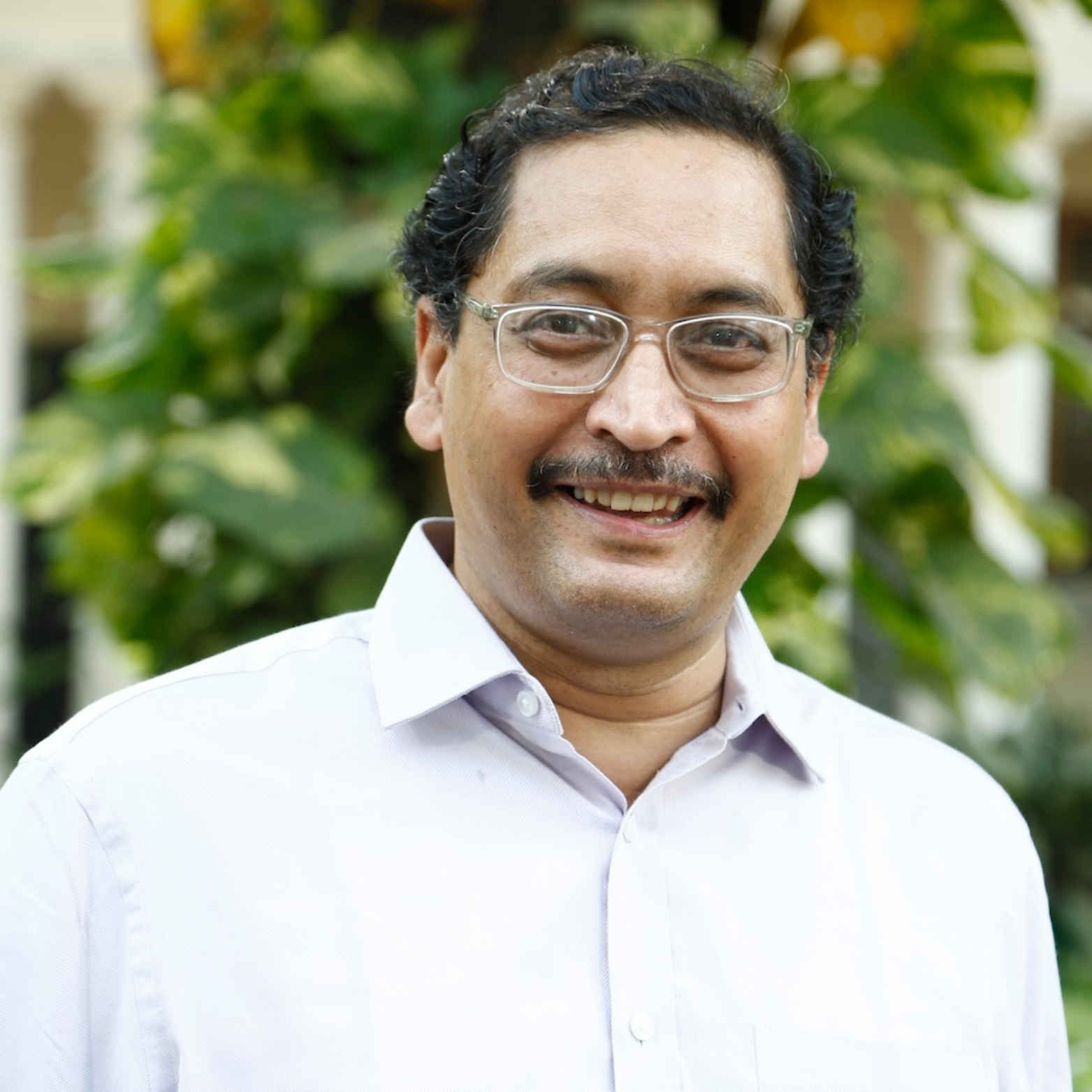
|
R. P. Mitra is a professor of social anthropology at the Department of Anthropology at the University of Delhi. Before joining the department in 2003, he worked as a Research Fellow at the Institute of Human Behaviour and Allied Sciences (IHBAS) under the Government of Delhi health department. He was trained in social anthropology at the University of Delhi. His areas of academic interest include psychological, medical, development and ecological anthropology. He has worked extensively in tribal communities of central India on issues related to indigenous knowledge systems, health, ecology and development. He specializes in ecologically sustainable developmental modelling, emphasising participative action research. He has been associated with impact evaluation studies sponsored by the Government of Madhya Pradesh on the Bharias, a PVTG community. He has been the Project Director for the task project of Bureau of Police Research and Development on the Status of Crime against Women in Eastern India (2011-15). He is a member of the Research Advisory Committees of the Anthropology Department at several universities. He has also been a member of the advisory board of NIRTH, ICMR, and Jabalpur. Currently, he is working on traditional healing systems, mental health and well-being. He has published 2 books and more than 40 papers and reviews in different journals.
| ||
Avitoli G Zhimo (M.Phil, Ph.D) Associate Professor 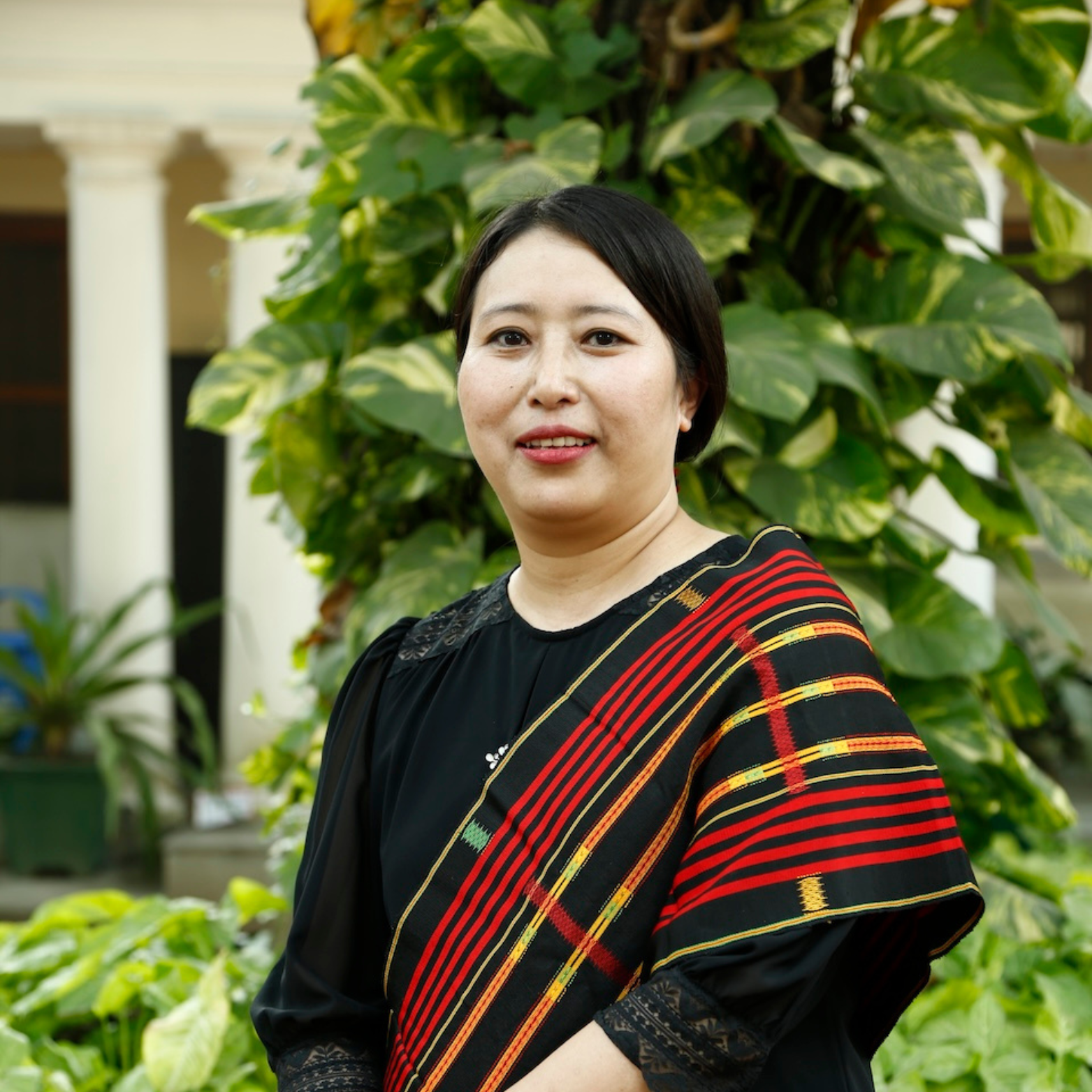
|
Dr. Avitoli G Zhimo has been teaching social anthropology at the University of Delhi since January 2009. She received her Master’s degree, M.Phil degree and PhD from the University of Delhi. She had worked extensively among the Naga tribes exploring the politics of conversion and the dynamics of customary law. She had also attempted to capture the changing realities among Naga tribes in the era of globalization. She was instrumental in reviving Visual Anthropology Lab in 2018. Her ethnographic films and photo-essays have featured in international platforms like the IUAES Congress 2020 (Croatia), Photo Oxford Festival 2021 (United Kingdom), Visual Ethnography journal (Italy). Her published works have focussed on indigenous governance, gender relations, customary laws, and visual representation of indigenous communities, particularly focusing on the tribes of Northeast India. She was an Assistant Director of the Centre for Himalayan STudies from 2021-2022. Currently she is also holding the position of Joint Director, Centre for Tribal Studies, University of Delhi.
| ||
Vipin Gupta (Ph.D) Associate professor Wellcome Trust/DBT India Alliance “Intermediate fellow” 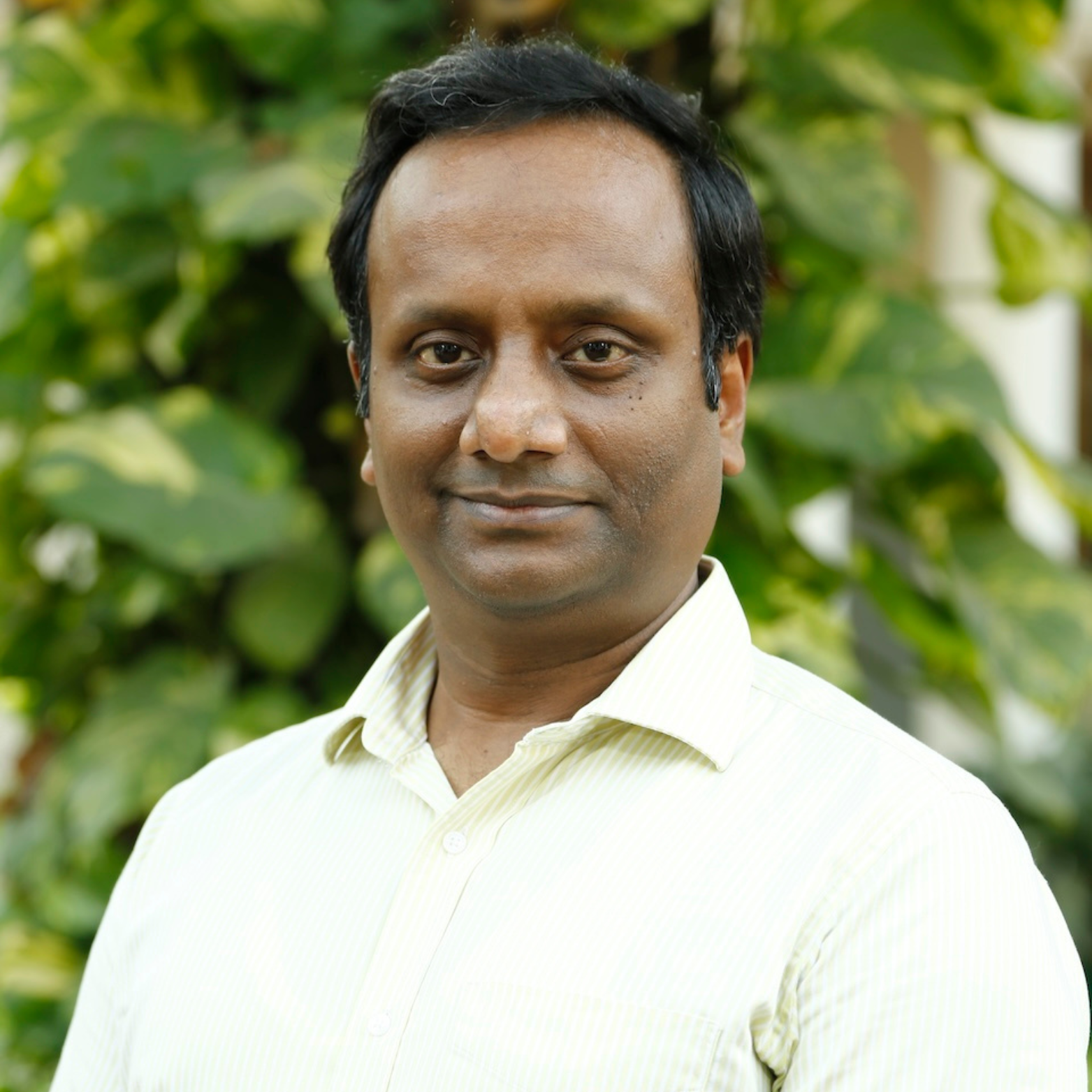
|
Dr. Vipin Gupta has research interest in lifecourse epidemiology, public health, genomics and social epidemiology. He is the recipient of the prestigious Wellcome Trust-DBT India Alliance “Intermediate Fellowship” award in Public health. He has received the Excellence Award for In-Service Teachers in 2021 by University of Delhi for his outstanding service and contributions in research. He is also the director of GaRBH cohort ("Gestational Route to Healthy Birth") in Bikaner, which is the first longitudinal study of Indian anthropology, in the area of maternal and child health. He has been teaching in the Department of Anthropology since 2013, and the first one to introduce Epidemiology and Public Health in M.Sc. curriculum and established the laboratory of “Public Health & Genomics” in the department. From the last 16 years, he is consistently involved in large scale studies in genetic epidemiology of cardiometabolic traits. To date he has received research grant of INR ~8 crores from different funding agencies, like, DBT, ICMR, UGC, SERB, and Wellcome Trust, UK. He has published 80 research articles in reputed national and international journals with >50,000 citations and h-index of >30. In collaboration with LSHTM, UK, he has established a large inter-generational cohort i.e. “Andhra Pradesh Children and Parents Study” (APCAPS), and developed a Dry blood spot based large bio-bank for National Institute of Nutrition, ICMR. He has also initiated “COPD genetics Consortium” in collaboration with leading Indian pulmonologists. He has conducted a variety of anthropological fieldworks in different caste and tribal populations and has fair experience of running consortiums in India.
| ||
Naorem Kiranmala Devi (M.Sc., Ph.D) Associate professor 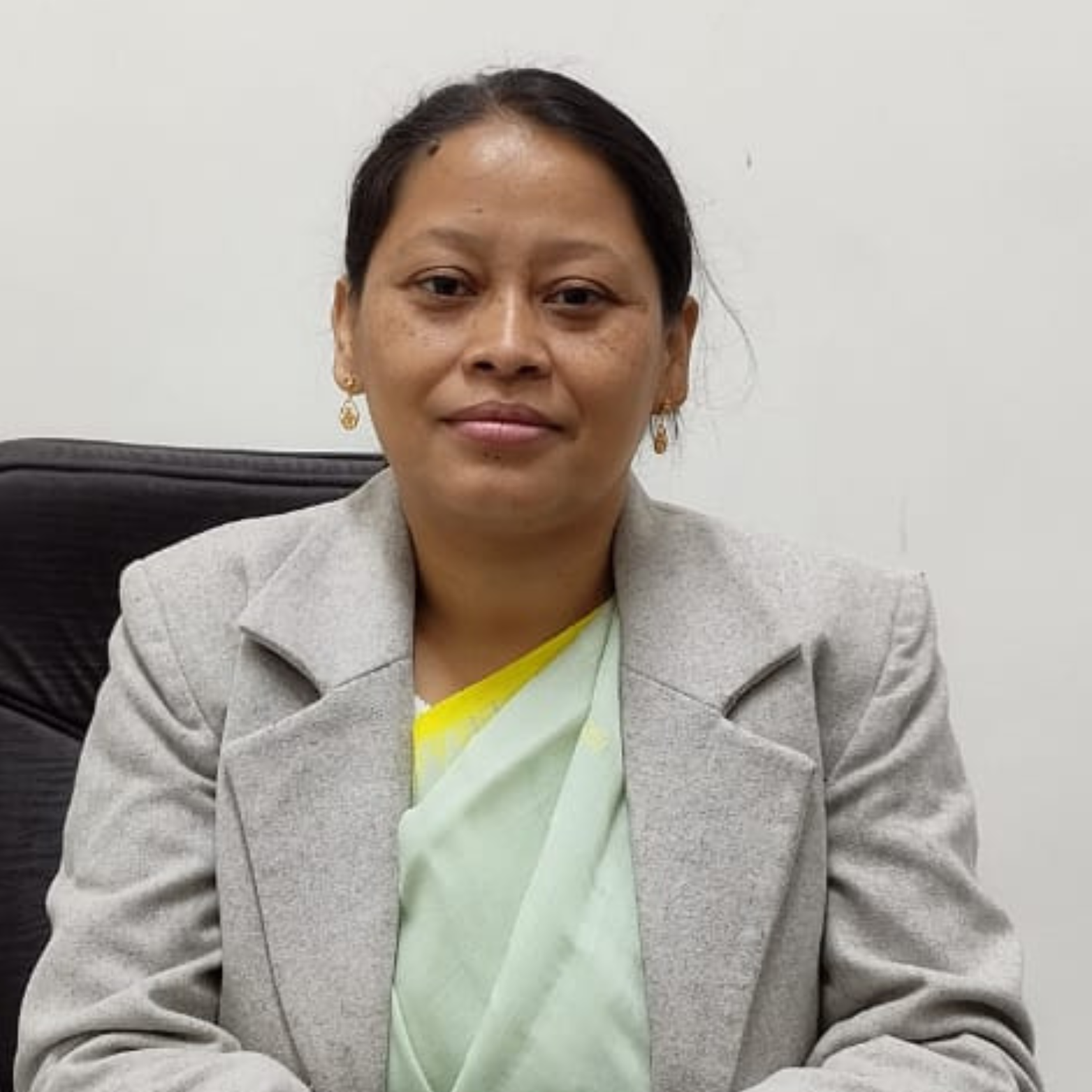
|
Dr Naorem Kiranmala Devi is trained in Physical Anthropology and completed her doctoral research at the University of Delhi. Before joining the Department of Anthropology, University of Delhi as a faculty member, Dr. Devi worked at the INCLEN Trust International as a Research Officer. Her research primarily focuses on molecular anthropology, anthropology of health, public health, and nutritional anthropology. Dr. Devi teaches papers on Nutritional Anthropology, Anthropology of Health, Human Origin and Variation, Molecular Anthropology, Research Methodology and Techniques, and Demographic Anthropology. Through her research initiatives, she has extensively explored the population-specific risk factors of cardio-metabolic disorders in India, along with the associated genetic and epigenetic alterations. With substantial experience in academia, she has contributed to course development, conference organization, and research administration. She has published over 50 research articles and book chapters and served as a principal investigator and co-investigator in several research projects exploring diverse topics such as cardiovascular health, genetic polymorphisms, epigenetic studies, and socio-cultural determinants of health. She has 198 citations and 7 h-index. Additionally, she actively engages in community service, particularly in raising awareness about health issues such as thalassemia and hypertension through outreach programs and screening camps.
| ||
Moiranthem Kennedy Singh (M.Phil, Ph.D) Associate Professor 
|
Dr. M. Kennedy Singh was educated at Manipur University and the University of Hyderabad. He has previously worked as a consultant faculty in the National Institute for Micro Small and Medium Enterprise, Hyderabad, Govt. of India and faculty member at the Centre for Rural Studies, NIAR, Lal Bahadur Shastri National Academy of Administration Mussoorie before joining the Department of Anthropology, University of Delhi as an assistant professor. He currently teaches papers on Research Methodology, Urban Anthropology, Anthropological theories of Society and Culture, Anthropological Theory, Reading of Ethnography, Indian Tribes, Psychological Anthropology, and Material Culture.
| ||
Chakraverti Mahajan (Ph.D.) Associate Professor 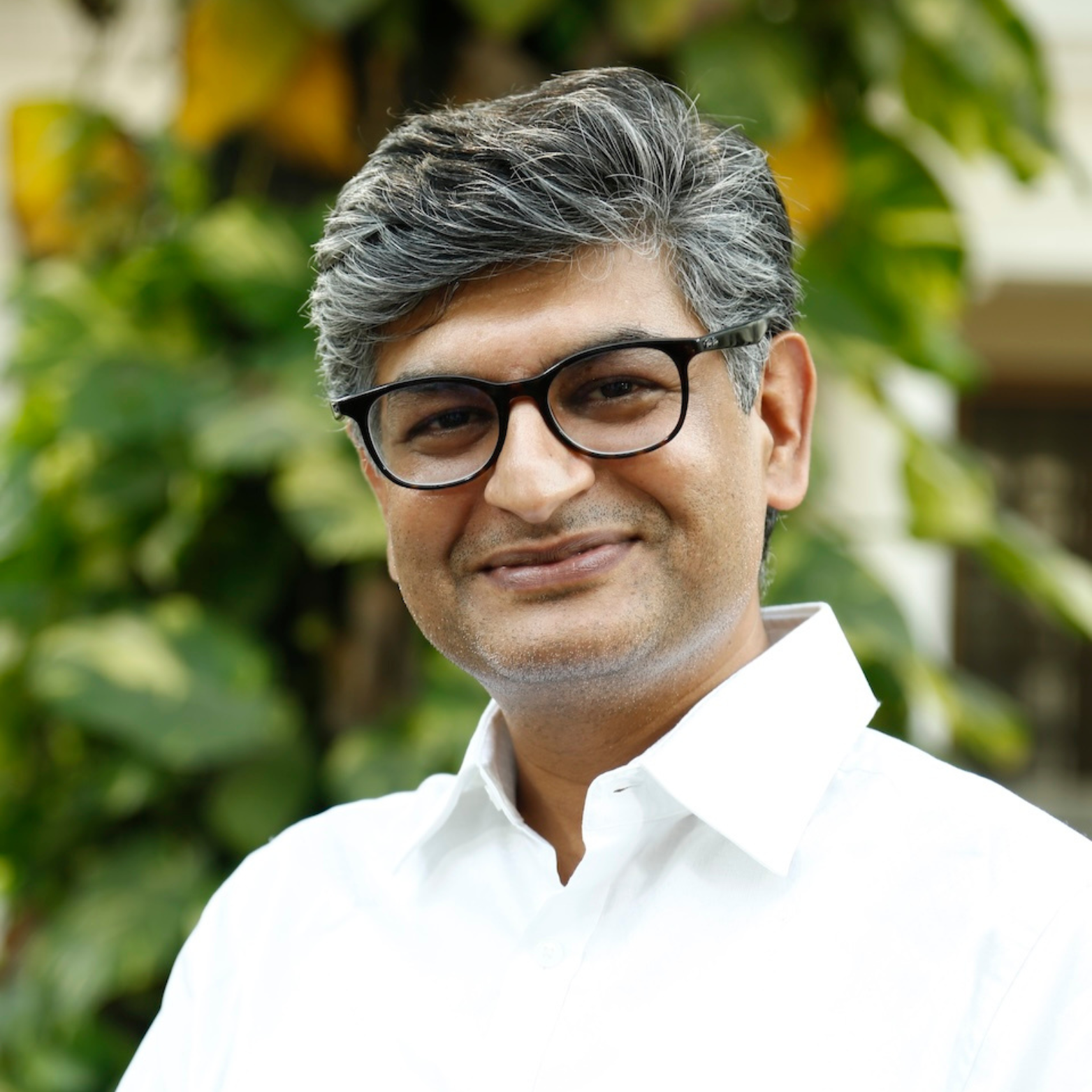
|
Chakraverti Mahajan is an Associate Professor in Anthropology at the University of Delhi. Dr Mahajan completed his Masters and PhD from Panjab University, Chandigarh. His doctoral work explores the impact of armed conflict on Hindu-Muslim relations in Jammu and Kashmir. He has been teaching in Delhi for a decade and was Charles Wallace Fellow (2021-22) at the Queen's University, Belfast, UK. Currently he is working on an Indian Council for Social Science Research (ICSSR) funded project on Social and Mental Health of Border Communities in Jammu and Kashmir and has just completed a collaborative project on Infertility and Psychological well-being funded by the National Commission for Women (NCW). His research on Jammu and Kashmir has been recognised by peers and professional bodies.
| ||
Shivani Chandel (Ph.D) Associate Professor 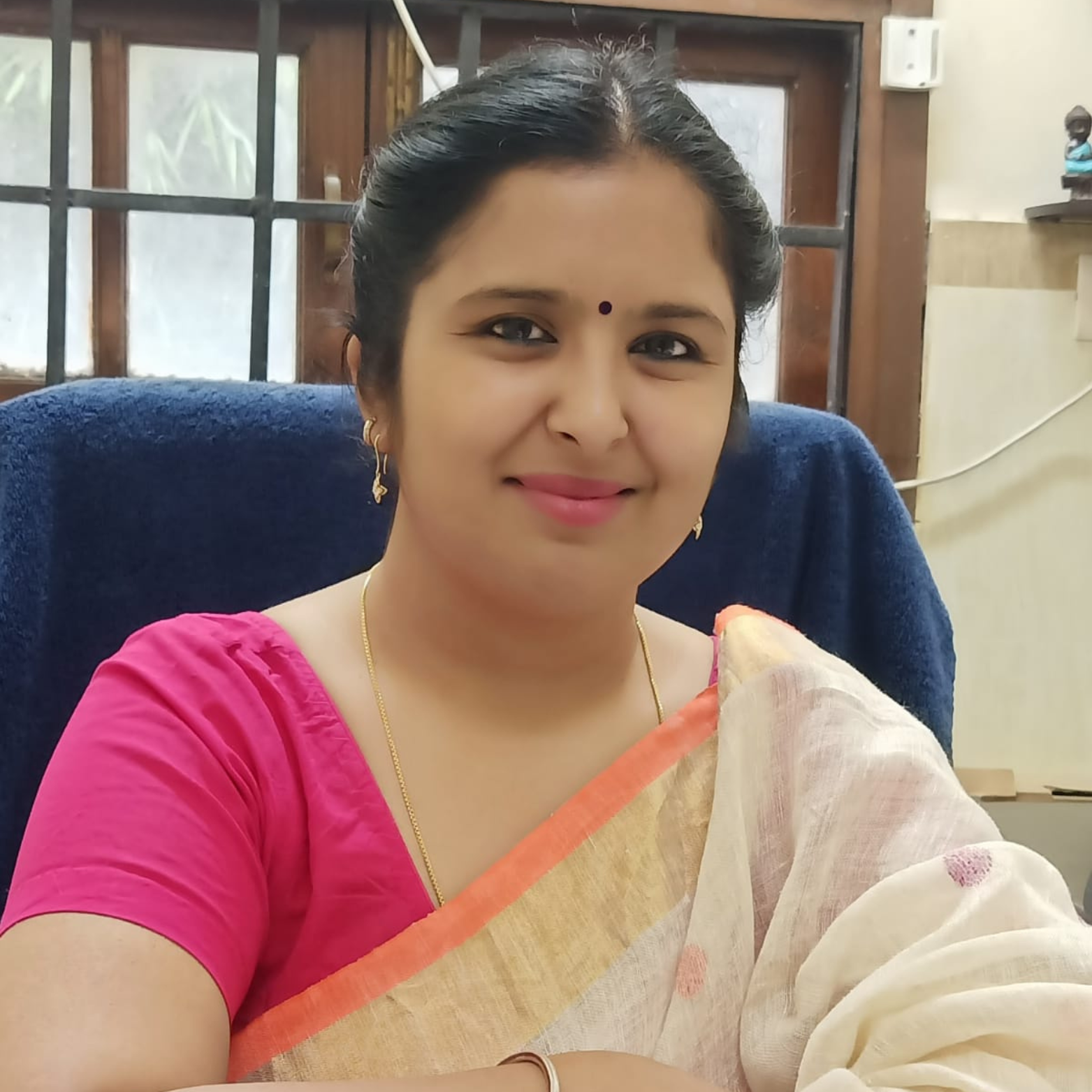
|
Dr. Shivani Chandel is currently working as an Associate Professor in the Department of Anthropology at the University of Delhi. After completing her PhD in Anthropology from Department of Anthropology, University of Delhi in 2012, she joined the department as an Assistant Professor in 2013. She is widely published in highly reputed national and international journals with a high Impact factor. She has successfully completed many research projects as a PI funded by the Delhi University- Research Council, Institute of Eminence and as a Co-PI funded by the Department of Science and Technology (DST). She is currently running a major research project as Project Director funded by Indian Council of Social Science Research (ICSSR). She is the Co-partner in the South Asian Partner of the Global Partnering Award Ageing Network: South Asia (SAAgeNet), member of the Cognitive Frailty Interdisciplinary Network (CFIN) funded by the Biotechnology and Biological Sciences Research Council and the Medical Research Council, both part of the UK Research Institute (UKRI). Apart from that, she is a member of many national and international professional bodies and networks. She is on the Editorial Board of the official journal of Sports Authority of India (SAI) and on the Review Board of many international journals of high repute.
| ||
Mitashree Srivastava (D.Phil) Associate Professor 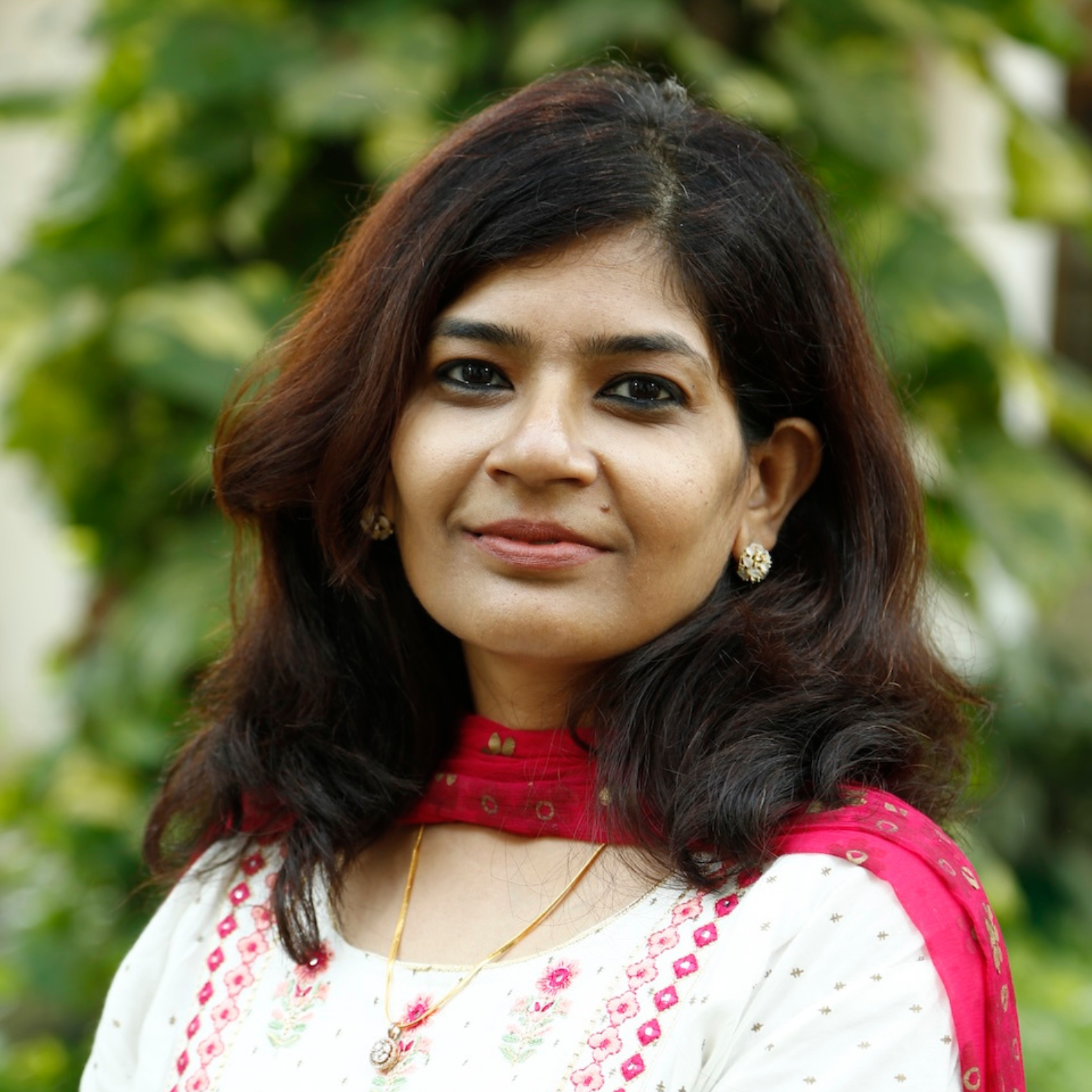
|
Dr. Mitashree Srivastava was educated and trained in social anthropology at the University of Allahabad. Her thesis explored the evolution of Bodh Gaya as a sacred complex focusing on the Study of religion emphasizing narrative and discourse analysis in relationship to constructions of religious identities in South Asian globalizing contexts. She has a perennial interest in finding out the significance of trans- nationalization in shaping up experiences and interpretations of what constitutes "authentic" Buddhist identity / Collection, description, and analysis of Narrative histories and testimonials of becoming Buddhist to explore the relationship between religious experience and identity formation in 21st century South Asia. She currently teaches Anthropology of Religion, Politics and Economy, Human Ecology: Social -Cultural Dimensions, Ecological Anthropology, Anthropology of Gender, Anthropology of Religion and Symbolism and Anthropological Theory, Psychological Anthropology, Business Anthropology, Cyber Anthropology.
| ||
Dannarapu Venkat Prasad (Ph.D) Associate Professor 
|
Dr. D.V. Prasad’s research interest is in the areas of Ecological Anthropology, Ethno-ecology, Natural Resource Management, and Tribal Studies. Dr. Prasad had expertise in conducting anthropological fieldwork among endangering tribal communities like Jarawa and the Great Andamanese of Andaman Island. Dr. Prasad completed major research projects on the Impact of Tsunami on People of Andaman and Nicobar Islands, Availability of Food and Water in Jarawa Territory, Traditional Knowledge System of the Nicobarese of Katchal, Syncretism and Cultural Pluralism of the Nicobarese, Natural Resource Management and Changing Livelihoods of Baiga, Management of Sickle Cell Anemia among Tribes, and Evaluation of Corporate Social Responsibility (CSR) Projects of SECL. His research on the traditional knowledge of Katchal Island after the tsunami and earthquake is a landmark study in documentation of endangering the traditional knowledge system of the Nicobarese tribe.
|
||
Durga Rao Pedada (M.Phil, Ph.D) Associate Professor 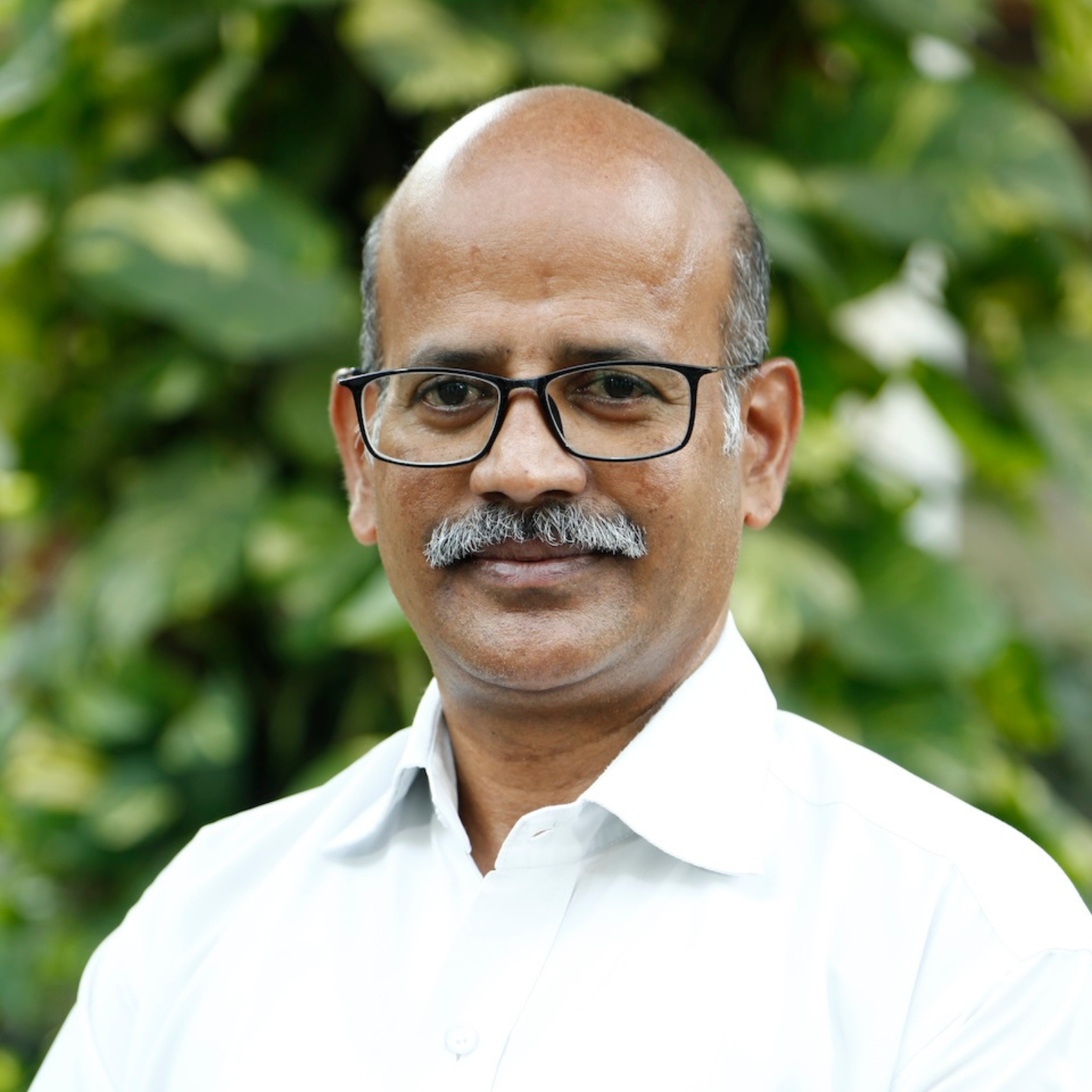
|
Dr. Durga Rao Pedada had his early training in Anthropology at Andhra University, Visakhapatnam, India. Prior to joining the present assignment at University of Delhi as Associate Professor, he served as Assistant Professor at Asmara College of Health Sciences, Ministry of Education, Eritrea; Associate Professor in the School of Humanities at Lovely Professional University, Punjab, India; and Professor and Head in the Department of Social Anthropology at Bule Hora University, Ethiopia. His areas of interest include: Forest Environment, Livelihoods, Health, Education, Ethno- Medicine and Development. He has been teaching Anthropological Theories, Anthropological Research Methods, Urban Anthropology, Anthropology of Economic Systems and Pastoral Society, Development Anthropology, and Medical Anthropology to both undergraduate and postgraduate students. He has supervised 7 doctoral Theses, in addition to several Masters Dissertations. He is member of many academic bodies and editorial Board Member of National and International Journals.
|
||
Ramesh Sahani (Ph.D) Associate Professor 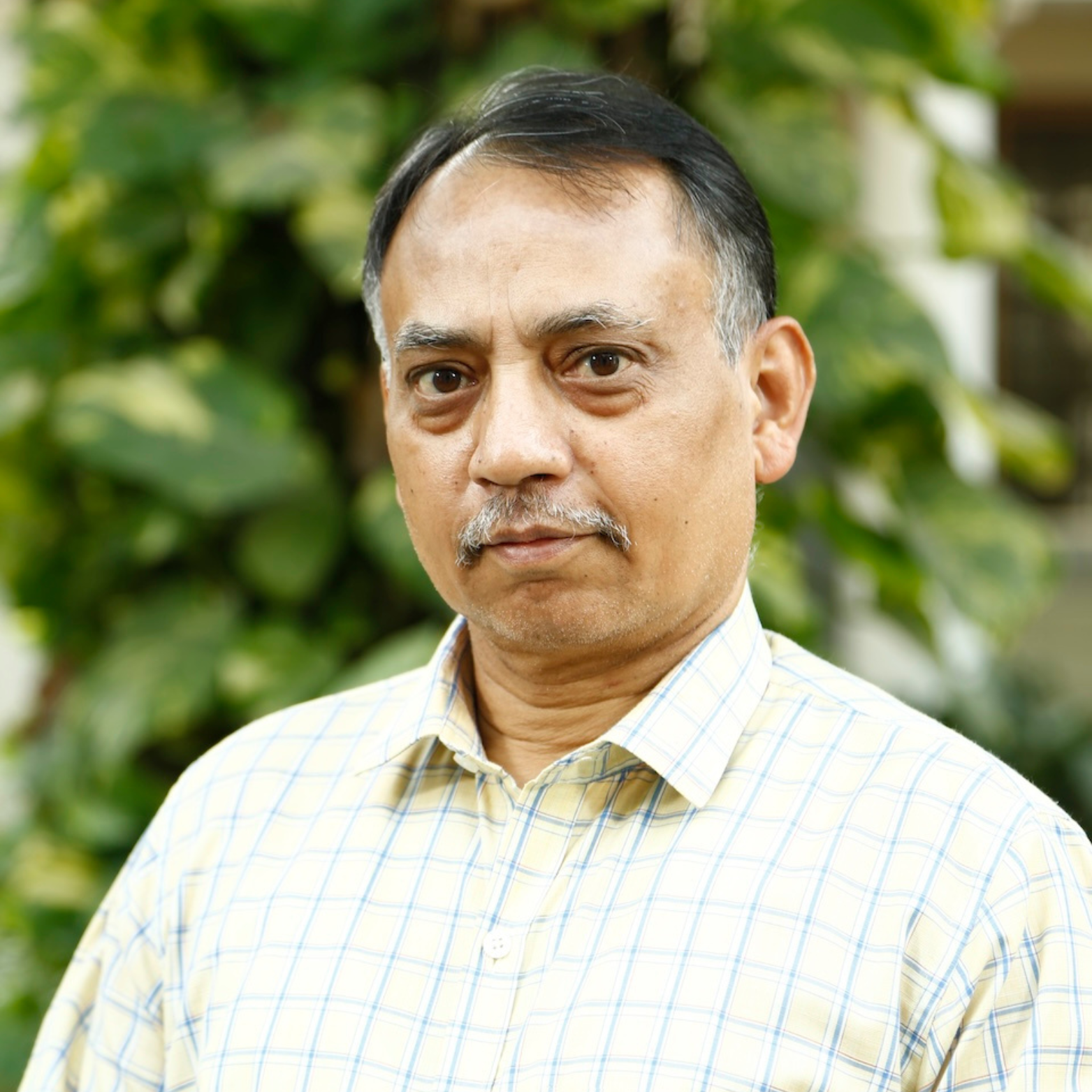
|
Dr. Ramesh Sahani joined the Department of Anthropology, University of Delhi on 29-05-2023. Prior, he was associated with the Deptt. of Anthropology, Panjab University (10 years) and Anthropological Survey of India for more than 20 years. He served at different offices of the Anthropological Survey of India, including Andaman and Nicobar Islands and Shillong, Meghalaya. He worked among the hunter-gatherer tribes of Andaman and Horticulturists of Car Nicobar Island. Though, his specialisation is biological, but also worked in Cultural Anthropology and other emerging fields such as social impact assessment, molecular anthropology, cognitive sciences, etc. He got his Anthropological training from Calcutta University, Dr. Hari Singh Gour Vishwavidyalaya and Gauhati University. He completed more than 10 research project during his tenure at the Survey as Co-PI and PI at Panjab University. His goggle citation is 347 with 7 h-index and 6 i-10 index.
|
||
Meenal Dhall (Ph.D) Assistant Professor 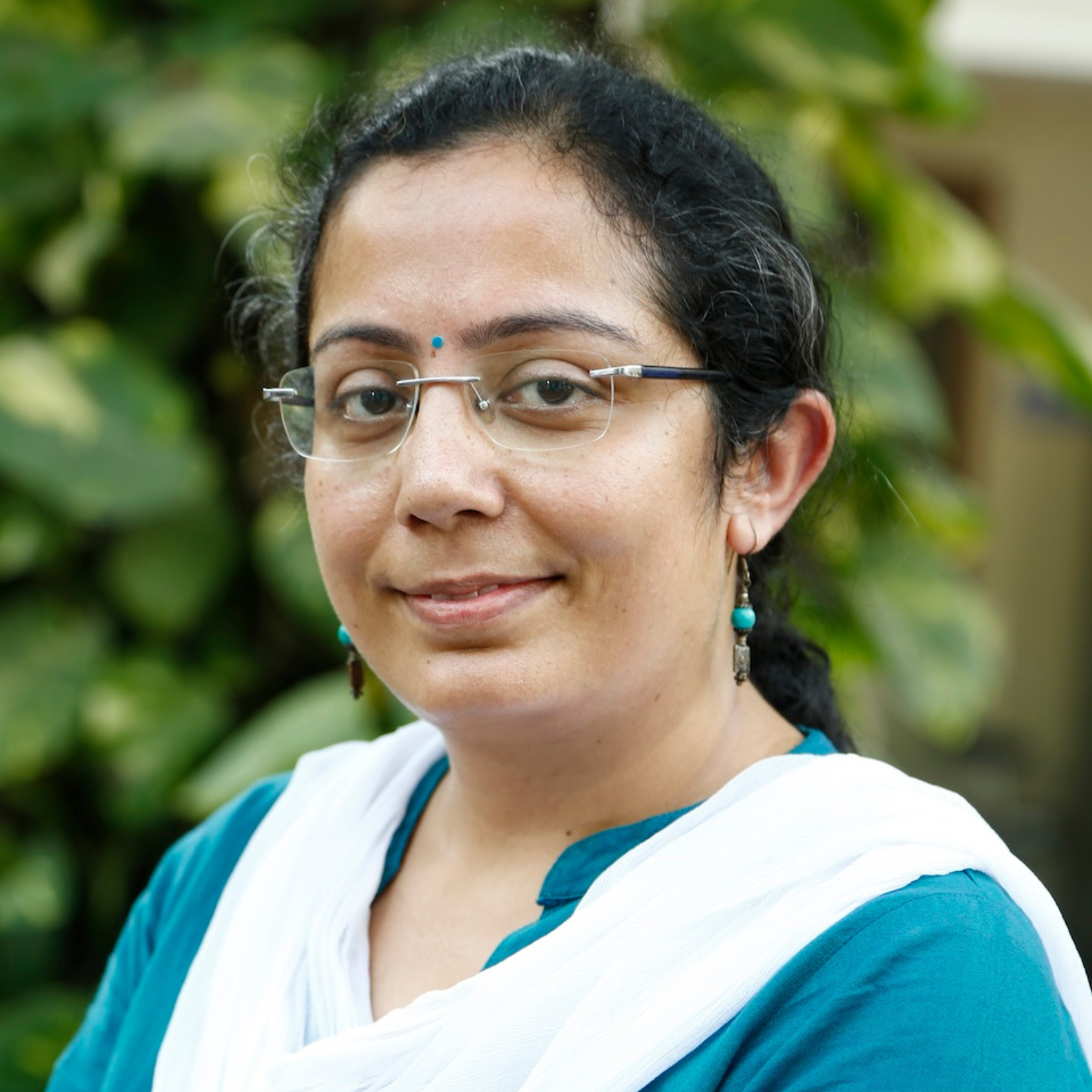
|
Dr. Meenal Dhall is presently an assistant professor in the Department of Anthropology at the University of Delhi. She did her doctoral degree in 2013 on patterns of physical activity and metabolic syndrome among adults in Delhi. She was a University teaching assistant during her PhD in the Department of Anthropology at the University of Delhi. She received a postgraduate diploma in public health nutrition from PHFI, Delhi, in 2011 and completed an MA in Psychology in 2023 from IGNOU. She has received various research and academic awards in international and national conferences. She visited South Africa, Mexico, Germany, Sweden, Austria, and France in connection with her academic activities. She is the founder member of MSc Forensic Science in the Department of Anthropology, University of Delhi. She also organized various conclaves, seminars, international workshops, and anthropology and forensic science conferences. She served as a committee member and subject expert on various academic and administrative committees of the University of Delhi, UGC, and various organizations. She has been actively working on public health problems, especially obesity and cardiometabolic disease, nutritional status, physical activity and its related health outcomes among different populations.
| ||
Suniti Yadav (Ph.D) Assistant professor 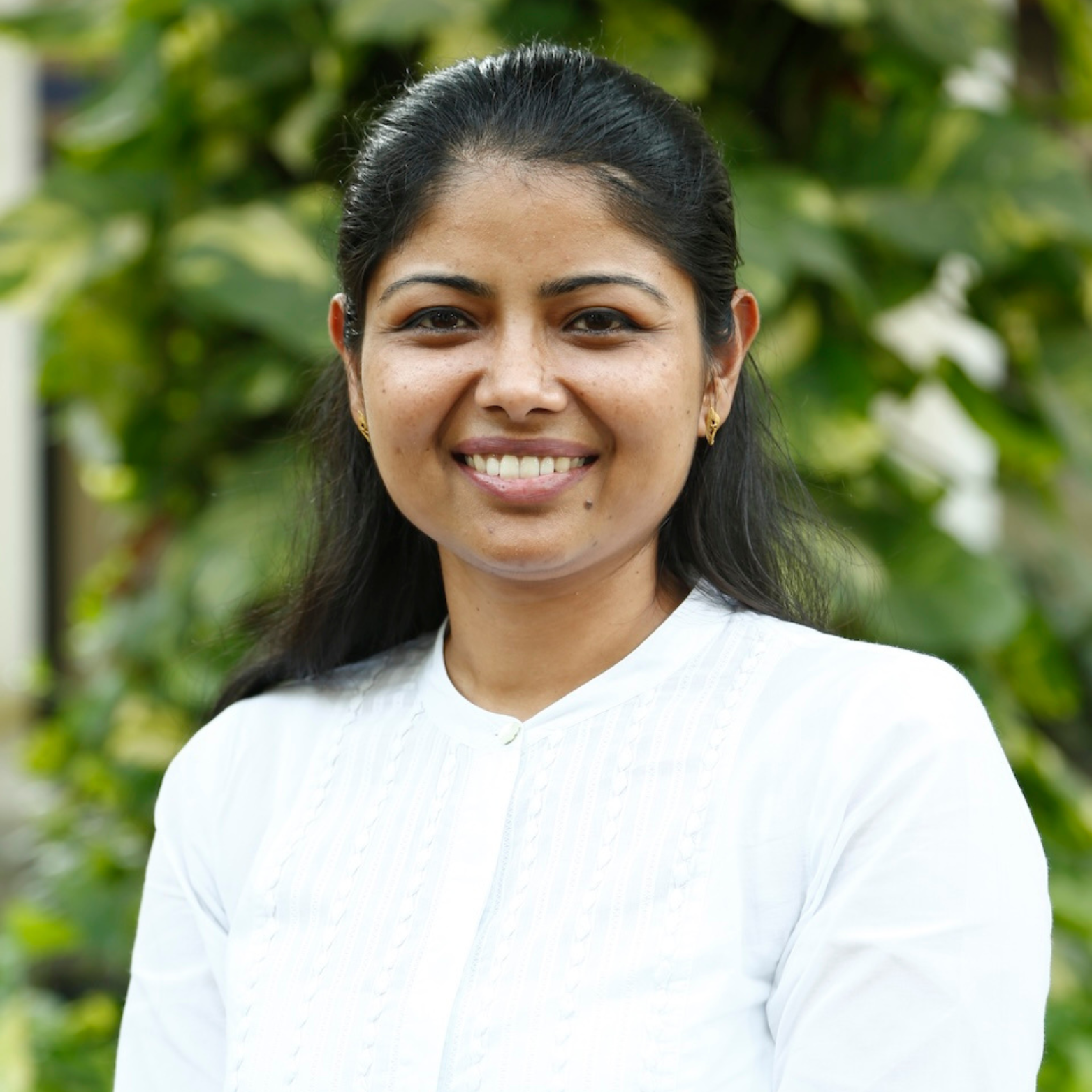
|
| ||
Abigail Lalnuneng (Ph.D) Assistant professor 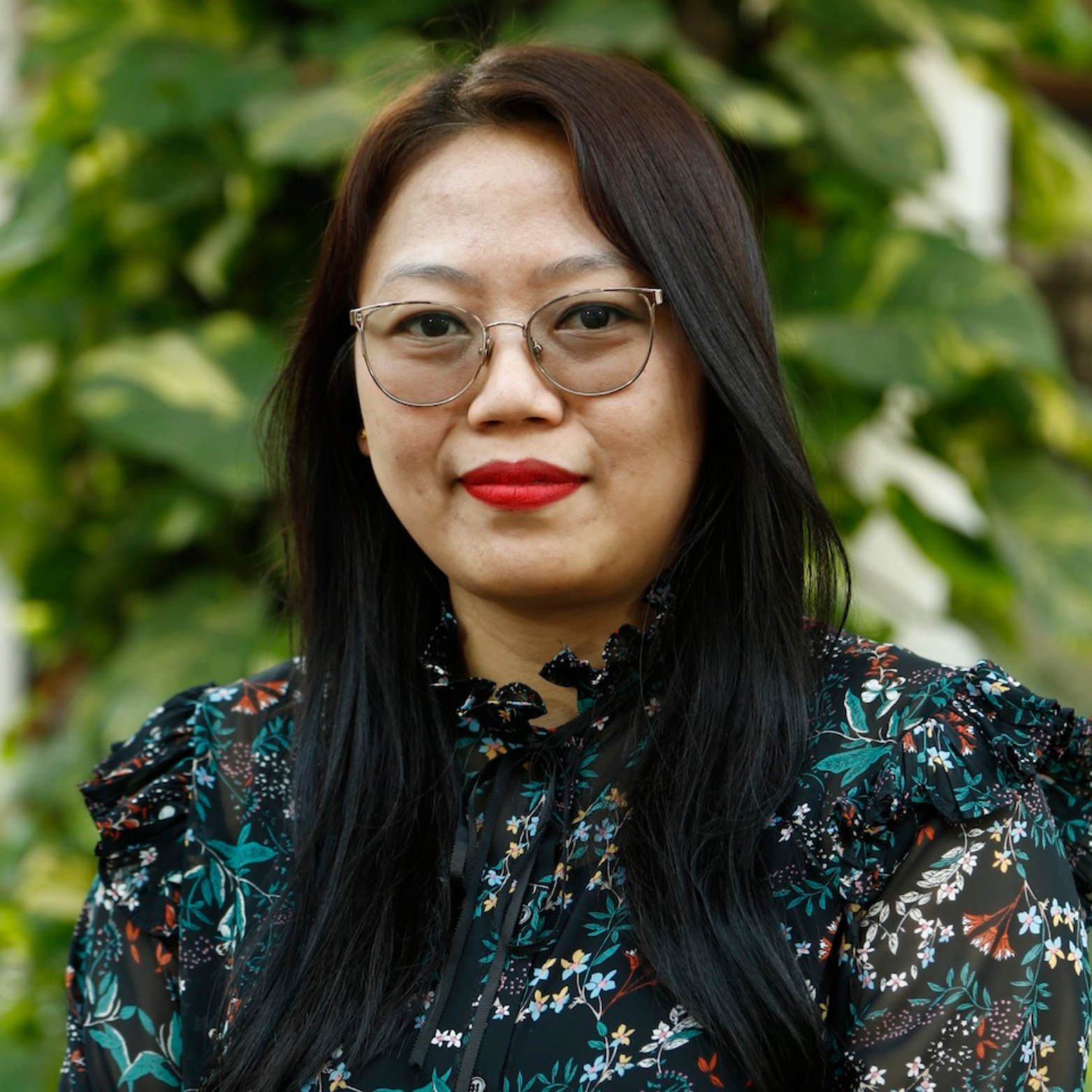
|
|
